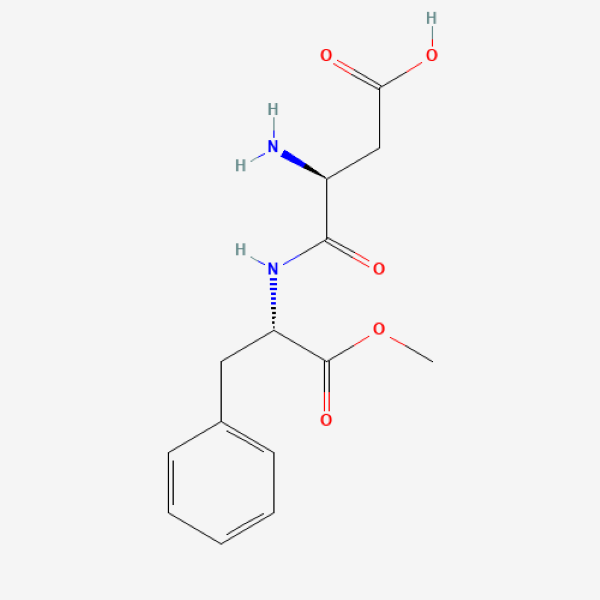Aspartame what is all the fuss about?
As a dietitian with over two and a half decades of experience, I have always prioritized the well-being of my clients and promoted a balanced, healthy diet for each individuals needs, health, likes and dislikes etc. Throughout my career, I have encountered numerous questions about artificial sweeteners, particularly aspartame. In this blog, I would like to share my perspective on aspartame and explain why I prefer to steer clear of artificial sweeteners.

What is Aspartame?
Aspartame is an artificial sweetener that has been widely used as a sugar substitute in various food and beverage products. It is found in many sugar-free or “diet” options, such as soft drinks, chewing gum, and desserts.
Aspartame is a synthetic substance that combines two ingredients:
1. Aspartic acid. This is a nonessential amino acid that occurs naturally in the human body and in food. Amino acids are the building blocks of protein in the body. The body uses aspartic acid to create hormones and to support normal function of the nervous system. Dietary sources include meat, fish, eggs, soybeans, and peanuts.
2. Phenylalanine. This is an essential amino acid that’s naturally present in most protein sources, but the body doesn’t produce it naturally. Humans have to get it from food. The body uses it to make proteins, brain chemicals, and hormones. Sources include lean meats, dairy products, nuts, and seeds.

Combining these two ingredients creates a product that is about 200 times as sweet as regular sugar. A small amount can make food taste very sweet. It also provides very few calories.
While aspartame is approved for use by regulatory authorities in many countries, its safety and health effects have been a topic of debate and scrutiny.
The World Health Organization (WHO) has recently issued a new guideline regarding non-sugar sweeteners (NSS). According to this guideline, the use of NSS is not recommended for weight management or as a means to lower the risk of noncommunicable diseases (NCDs).
Based on a thorough review of the available evidence, it has been found that (NSS) do not offer any long-term benefits when it comes to reducing body fat in both adults and children.
The review’s findings indicate that prolonged use of NSS may have unintended consequences, including a higher likelihood of developing type 2 diabetes, cardiovascular diseases, and increased mortality rates among adults.
Replacing free sugars with non-sugar sweeteners (NSS) may not be effective in achieving long-term weight control.
According to Francesco Branca, WHO Director for Nutrition and Food Safety, it is important for individuals to explore alternative methods of reducing their consumption of free sugars. This can include opting for food options that naturally contain sugars, such as fruits, or choosing unsweetened food and beverages.
Non-nutritive sweeteners (NSS) are not considered necessary for a balanced diet and do not contribute any significant nutritional value. It is recommended that individuals reduce their overall intake of sweeteners from an early age in order to enhance their overall health and well-being. (WHO 2023)

Why I suggest avoidance of Aspartame and others
- Lack of Nutritional Value: Aspartame provides sweetness without the calories associated with sugar. However, it offers no nutritional benefits. My approach as a dietitian has always focused on nutrient-dense foods that provide essential vitamins, minerals, and other beneficial compounds. Recommending aspartame threefore does not follow my beliefs.
- Psychological Impact: Artificial sweeteners like aspartame can create a psychological reliance on sweet flavors. This may lead individuals to develop a preference for overly sweet foods, potentially compromising their ability to appreciate the natural taste of whole foods. As a dietitian, I aim to encourage a diverse and balanced diet that relies on the enjoyment of real, unprocessed foods and change gut bacteria/brain to enjoy low sugar foods, feel full and move on with your day.
- Potential Health Concerns: Over the years, numerous studies have been conducted to investigate the safety of aspartame. While regulatory agencies such as the U.S. Food and Drug Administration (FDA) have deemed it safe for consumption within acceptable daily intake limits, concerns regarding potential side effects have persisted. Some studies have suggested associations between aspartame consumption and adverse health effects, including headaches, digestive issues, and even an increased risk of certain chronic diseases. Evidence suggests daily AS consumption during pregnancy is associated with an increased risk of preterm delivery, increased birth weight and decreased gestational age. Though these findings may not be conclusive, they have raised valid concerns that cannot be ignored.
- Promoting Natural Alternatives: Instead of recommending artificial sweeteners, including aspartame, I have always advocated for natural alternatives that can satisfy the desire for sweetness. Options like stevia, monk fruit extract, or even moderate consumption of natural sugars like maple syrup and just good ol’ fruit can be used as part of a balanced diet.
Conclusion: After practicing as a dietitian for 26 years, I have witnessed time and time again patents coming to me with the highest intakes of artificial sweeteners struggling the most with their diet, weight, physical and mental health. Once they start to follow one of my programmes these problems are quickly resolved. (if interested do check out my google and facebook reviews)
I am glad I have not wavered when others have challenged me and I have stood by my decision to not recommend artificial sweeteners, including aspartame. While aspartame may be deemed safe for consumption within approved limits, why risk it.
We need more ‘high’-quality research to further assess these relationships.
I will continue to educate people to prioritize a whole-food, nutrient-dense approach to healthy eating. By choosing natural alternatives and educating clients about the importance of mindful eating and moderation, I believe we can foster a healthier relationship with food that supports long-term well-being.
So, what to do next or for anything else..
If you are needing help with your diet and health or anything else… we can assist you with this. Maybe you wish to change your eating habits, stop tracking or need help optimising the foods you eat to assist your mental health or your gut symptoms and are not sure what programme to select, please do contact us. We would love to help you or your family and friends with any nutrition-related queries big or small.
If you want to book your programme TODAY we would love to help you.
You can book a 121 Dietitian Programme today by clicking on the link below
If you have enjoyed this blog we would love you to share this with your family and friends on your social media channels. Do visit our YouTube Channel for more on keeping your health optimal.
If you are interested in how I overcame my Thyroid Autoimmune Condition do check out the About section below
Before you go please check out our 121 Dietitian Shop created specifically for optimising your health.
Gillian x
Links included in this description might be Amazon affiliate links. If you purchase a product or service with the links that I provide I may receive a small commission.